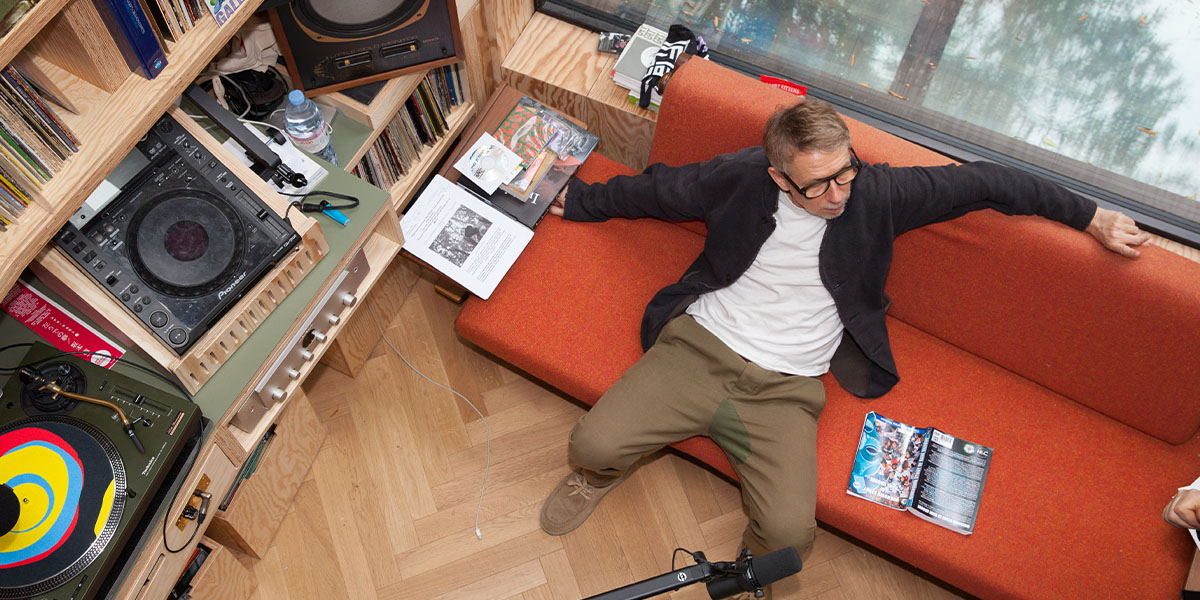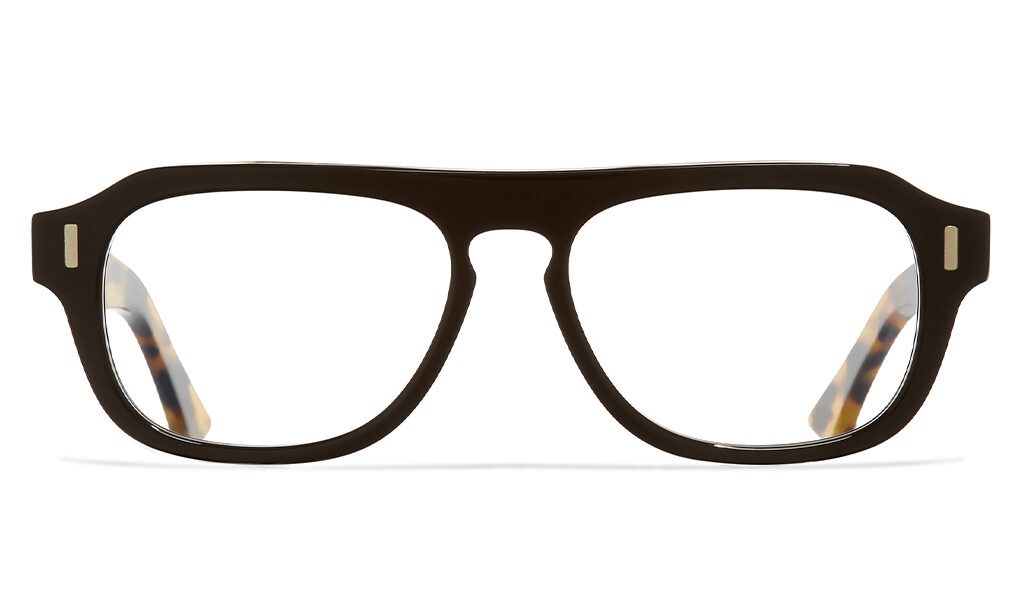Cutler and Gross’s In Conversation series celebrates our customers and their personal style. We explore their creative journey, from career beginnings to breakthroughs, and uncover how their Cutler and Gross frames mirror their unique aesthetic.
Interview by David Hellqvist | Photography by Freddie Payne | Creative by Document Studios
What did you do over Lockdown? Did you start baking banana bread, or did you learn how to crochet? Gilles Peterson, one of Britain’s most-loved radio broadcasters and DJs, filled his days with something else: he built a three-storey recording studio with enough shelving to house most of his considerable vinyl collection. Situated at the end of his Stoke Newington garden, the soundproofed space is where Gilles plans and plots his musical empire. There is even the possibility, he says proudly, to stage small (very small) live gigs in the basement.
The empire (though that’s probably not a word the very humble Gilles would use) is an extensive and creative network of BBC shows, music festivals, freeform radio services and record labels. Having joined the BBC in 1986 (after broadcasting pirate radio), Gilles founded and co-founded endless cultural institutions across the land, such as Talkin’ Loud, Worldwide FM, Brownswood Recordings, and the We Out Here festival. On top of playing at night clubs all over the globe, Gilles currently hosts a three-hour live BBC 6 Music show on Saturdays, as well as his regular Thursday Brownswood Basement slot on Worldwide FM
Introducing Gilles can turn into a long list of people he’s either worked with or mentored over the years, as such mapping his cultural relevance over a near four-decade long career. In an industry consumed by newness, and lined by endless artists constantly dropping new albums, it’s perhaps easy to feel old and tired. But that’s not the impression you get when talking to the French-born DJ. Instead, what strikes you is his never-ending thirst to find fresh music, and a burning desire to share that music with us, his listeners. Thank you for your service, Gilles.
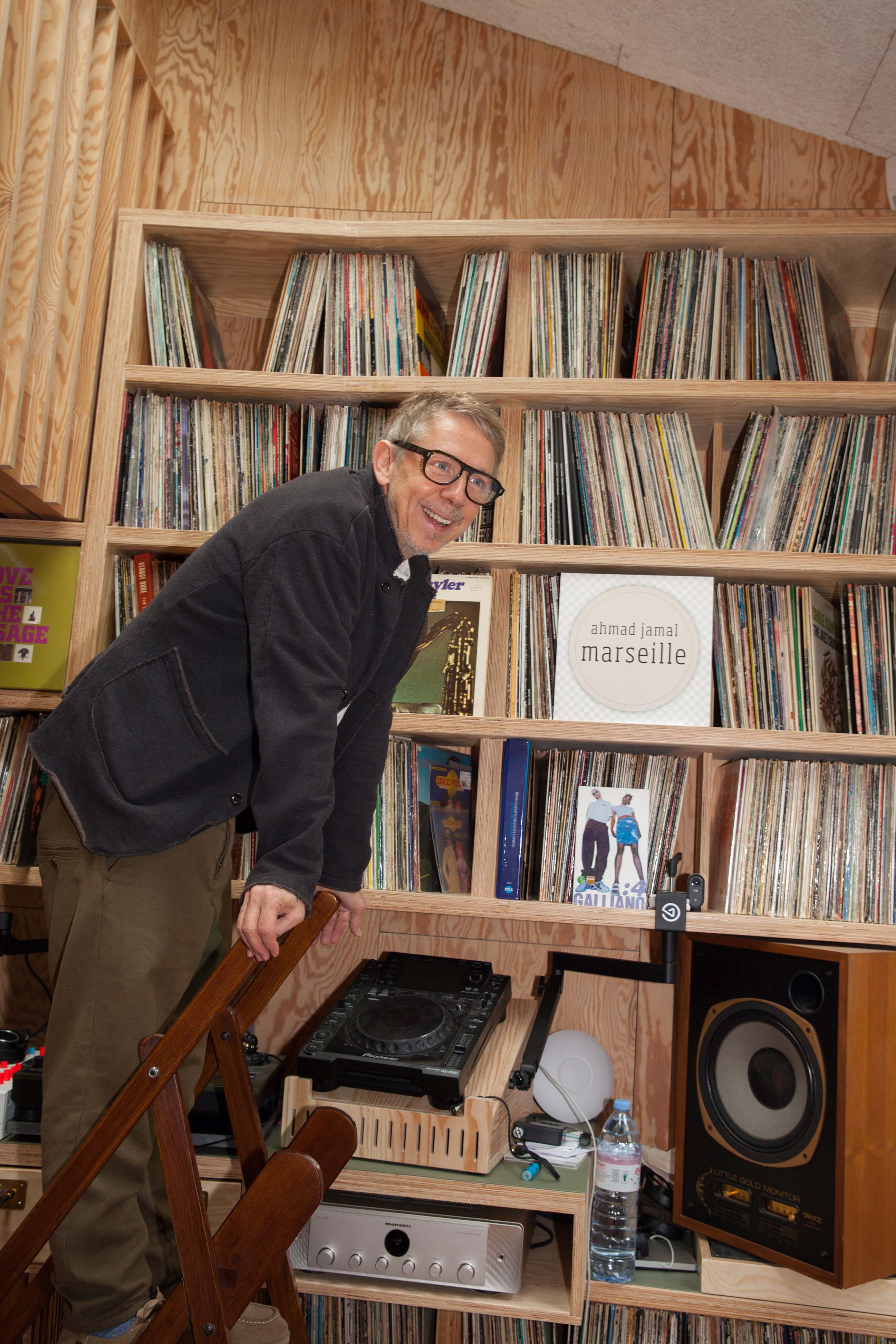
Gilles Peterson, RADIO BROADCASTER, DJ AND PRODUCER
“I remember broadcasting from Epsom Downs as a boy, and we received a phone call in the local phone box from someone going, ‘We’re listening in Tulse Hill’, and I thought, ‘Okay, this is it!’”
When you meet someone in the street, how do you describe what you do?
I’d probably say broadcaster ahead of DJ and producer. I’ve kind of worked out what people know me most for, and I think people know me more from radio than hearing me in a club these days.
Do you remember the moment when you discovered the power of music?
Yeah, I think it was when my friend and I spent what money we had to buy a mix and twin deck to set up a pirate station in my garden. We were probably about 15 at the time. We had been into music for a few years, but when I had my decks in my imaginary radio station, having bought a transmitter from the local electronic bootleg guy down the road, that’s when it got serious. I remember broadcasting from Epsom Downs, and we received a phone call in the local phone box from someone saying, ‘We’re listening in Tulse Hill’, and I thought, ‘Okay, this is it!’
What sort of music were you playing at the time?
Jazz, funk and soul. I was already a soul boy; I would go to weekend festivals in holiday camps around the country as a 16-year-old. In England at that time, there was this sort of badge of loyalty mentality to a particular kind of movement or scene, so it was a decision you made, a musical decision, as to what tribe you were going to belong to. Soul had everything going for it, it had the music, but it also had the clothes and a look to it. It had the girls, and it was very diverse – it was a sweet spot to be in!
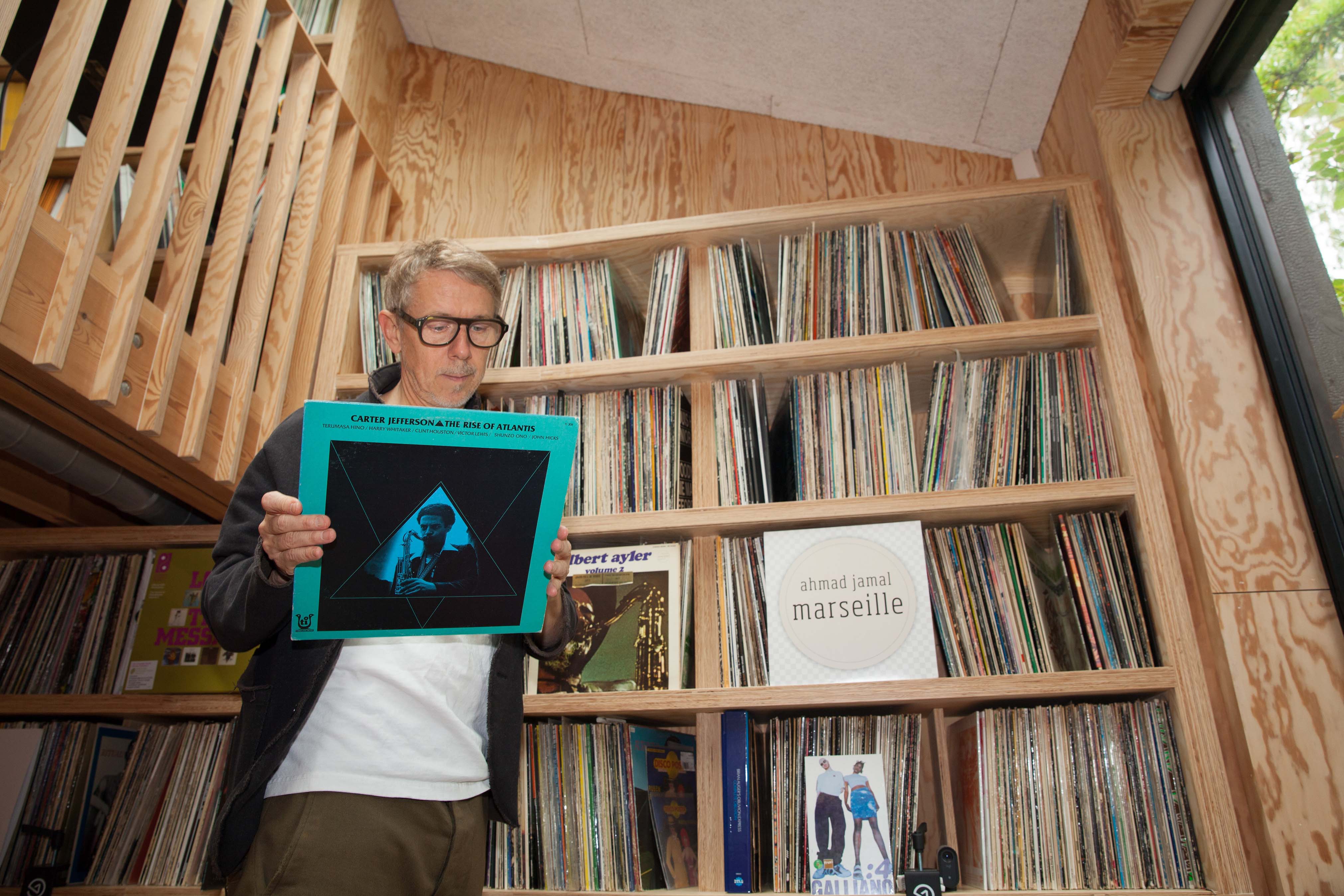
Did the soul take you to the jazz?
Yeah, jazz funk really, because I think that jazz is the end game in a way, and I don’t know many people who just suddenly wake up and go ‘I’m into Sun Ra’ … I think that you get there through other kinds of music like disco and soul.
What was the musical landscape like when you grew up, generally speaking?
In the mid to late 70s, there were two things happening: there was punk in 76, which had an influence on me through The Clash and other bands like that. There were also British jazz funk groups that you could go and see play live down the road, groups like Level 42, Light of the World and Incognito, who I later signed to my label.
GILLES PETERSON, RADIO BROADCASTER, DJ AND PRODUCER
“I approach my radio show very much like I do a club gig, I don’t have a set show when I walk in, I don’t have any scripts. I come in with approximately 70 to 100 songs, almost going in blindfolded to see where the music takes me”
When people hear your name they often think about ‘world music’, but it’s such a vague term – what does it mean to you?
In my mid-20s I went to Brazil to DJ, as there was growing interest in Brazilian music in UK clubs at the time. I played Brazilian music to them, and they were looking at me like, ‘What the hell, that’s what my grandparents play!’ They wanted me to bring acid jazz and rare groove from the UK, that’s why they brought me over there. I realised that it was basically an exchange, I was supposed to bring the kind of stuff that they couldn’t get hold of – my element of world music. And then I’d bring music I’d found out there back to England and play it on the radio and in clubs. So yeah, that’s what ‘world music’ means to me, it’s an exchange of information and ideas.
Music is your life and your work – do you ever get tired of it?
No, because it’s still my hobby and I’m still, as you can see when you look around the space here, really into it. And if you listen to my radio show I’ve never been more driven and excited by the power of music than right now. For me, music and the purpose of music, how it brings people and different cultures together, is a magic formula. I’m really happy that I’m still working within that. And it still gives me pure pleasure as a fan, as someone who’s a collector, or someone who wants to share that passion.
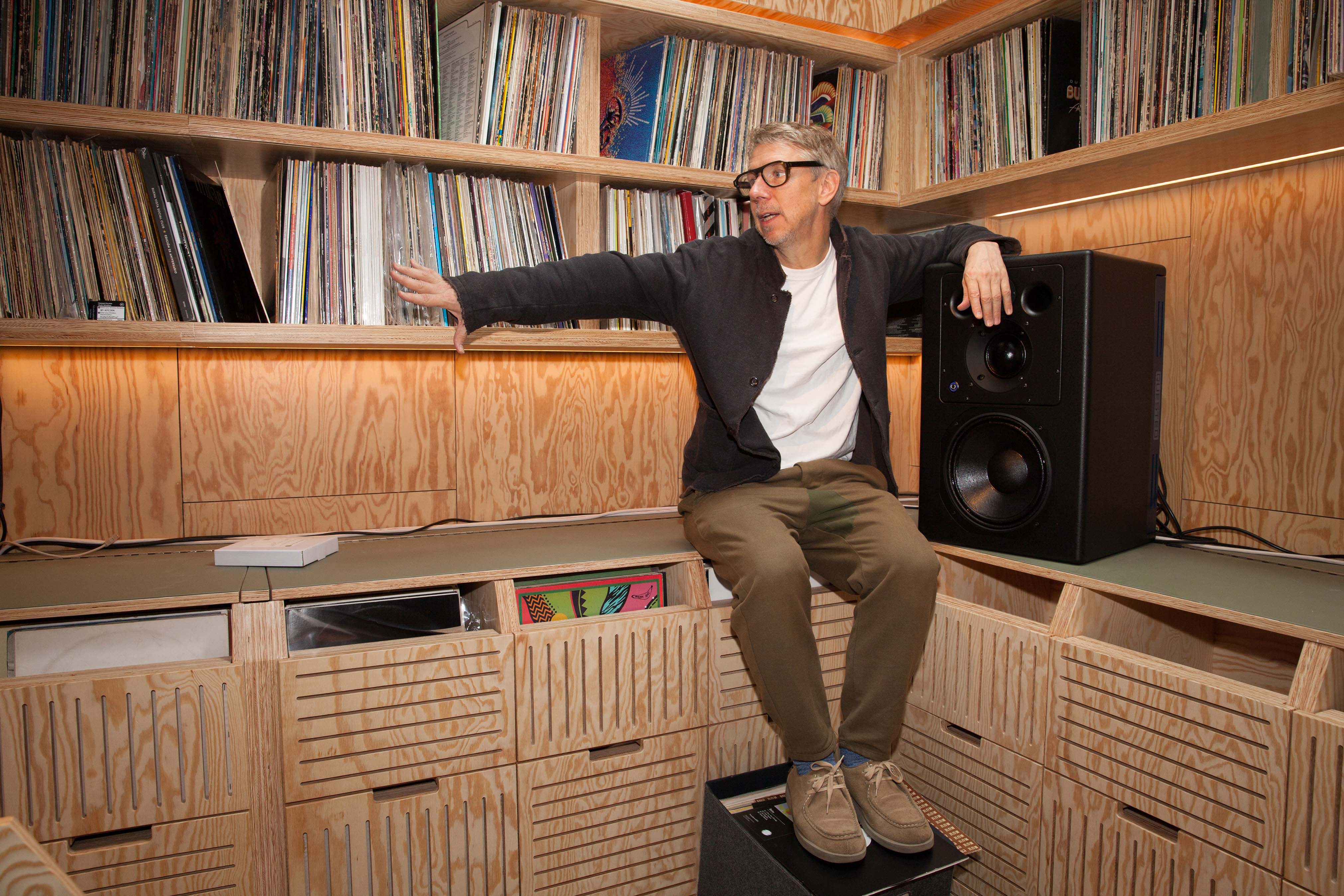
GILLES PETERSON, RADIO BROADCASTER, DJ AND PRODUCER
“I’ve never been more driven and excited by the power of music than right now … it still gives me pure pleasure as a fan, as someone who’s a collector”
Are you equally intrigued by new music as old?
Yeah, it’s that balance that I’m always searching for. And especially in recent times, as we’ve lost some very important and influential musicians of late, like Ahmad Jamal for example. My purpose is to find a way to connect the old with the new, to balance emerging artists with an older generation of musicians. The music of today is as exciting as the music that was being made 20, 30 or 40 years ago. I think people aren’t realising that, but there’s so much craft and great music being made.
How does doing a radio show compare to a club gig?
Well, I approach my radio show very much like I do a club gig, I don’t have a set show when I walk in, I don’t have any scripts or anything like that. I usually come in with approximately 70 to 100 songs, almost going in blindfolded to see where the music takes me. I have to create from what I have on me, and that’s very similar to being a club DJ. I suppose if you were to compare it to music, it’s the free jazz equivalent of DJ-ing.

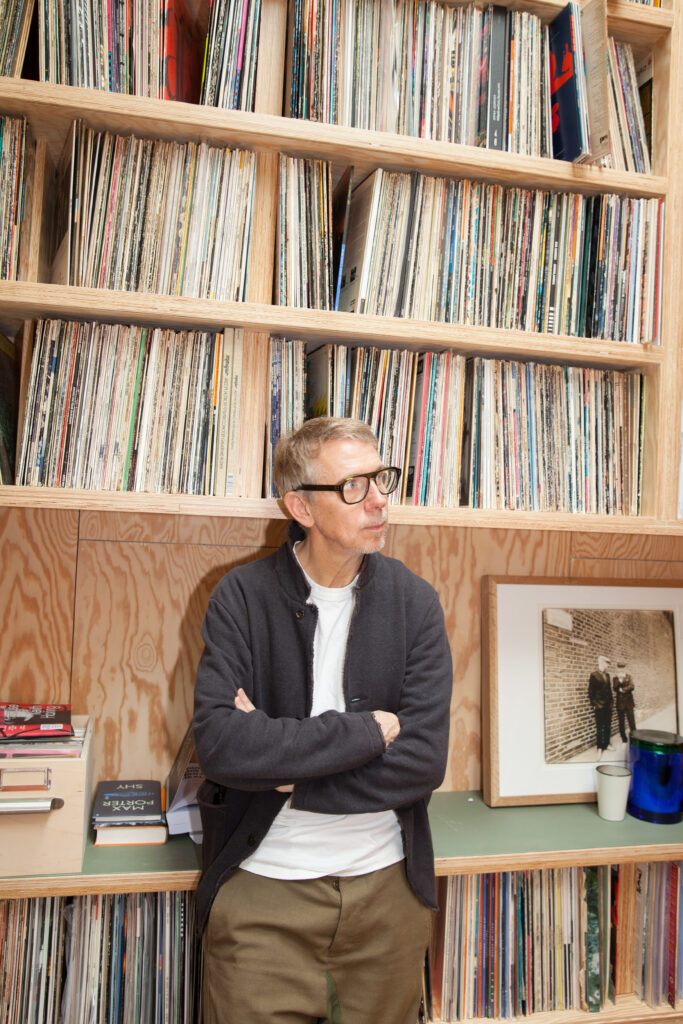
Can you name a few bands or artists that you are into at the moment?
A record I really like now is the latest one from Speakers Corner Quartet. They started off as a busking group, but they’ve been at the forefront of this kind of renaissance of British jazz and electronic music of late. I also like Dreamcastmoe from Washington D.C. I really rate his music because it’s yet another twist on hip-hop. Another record that I’m really proud of (I’ve just finished working on it actually) is the new album from British drummer Yussef Dayes.
Find out more about Gilles’s ongoing projects, upcoming tour dates and radio shows here.

